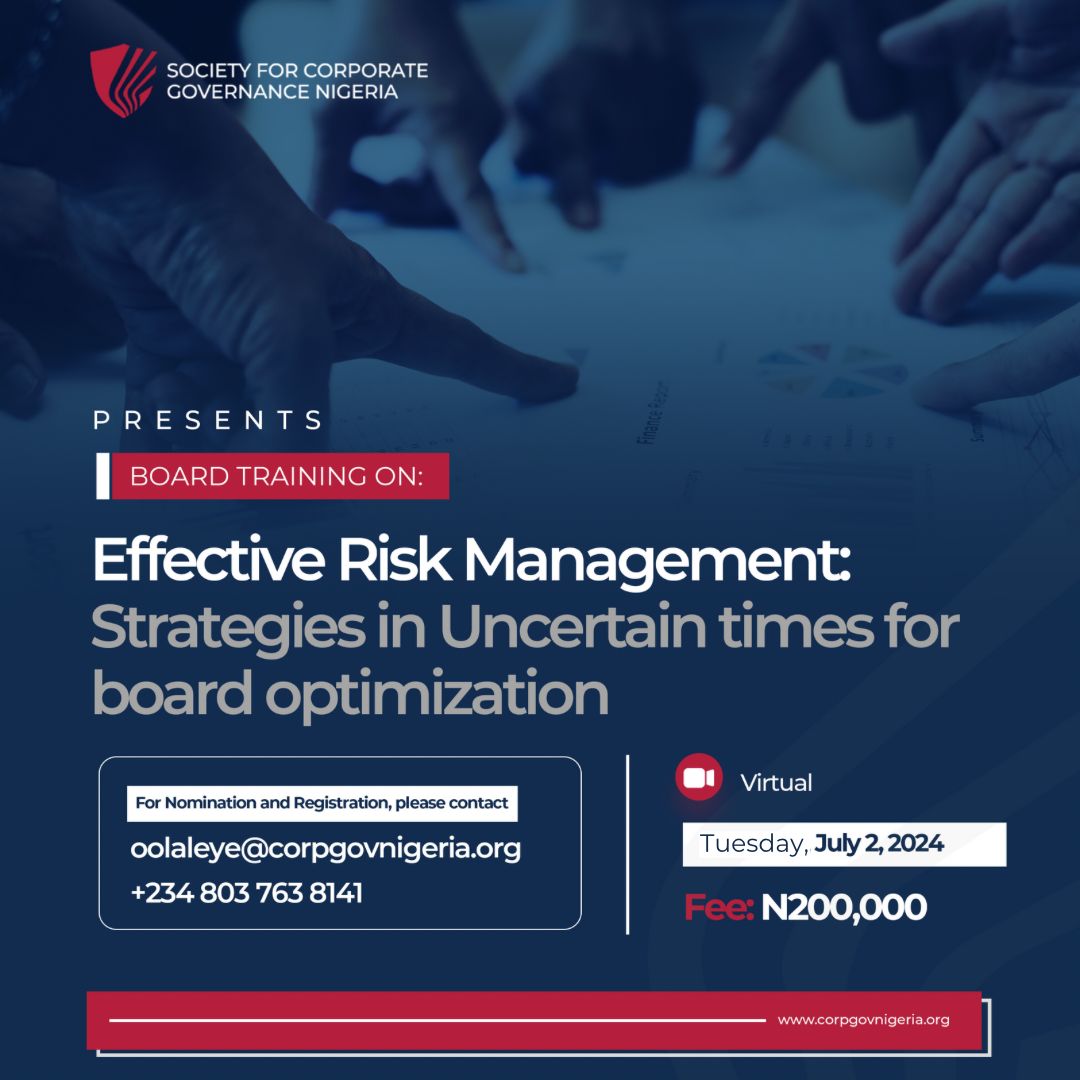
Effective Risk Management, Strategies in Uncertain Times For Board Members
Introduction:
In today’s dynamic business landscape, organizations face an array of challenges that necessitate a comprehensive understanding of effective risk management, ethics, and governance. The interplay of these elements is critical for Board Optimization, ensuring sustainable growth and safeguarding the interests of stakeholders. This training aims to equip board members with the knowledge and skills required to navigate complex decision-making scenarios, foster ethical practices, and establish robust governance frameworks.
Objectives of the Training:
The primary objective of this training is to empower board members with the tools necessary for optimizing their roles in risk management, ethics, and governance. Participants will gain insights into industry best practices, emerging trends, and strategies to enhance their decision-making processes. The training is designed to foster a culture of ethical conduct within the organization, while simultaneously strengthening governance structures to promote long-term success.
Training Outlines:
Session 1: Risk Management for Board Optimization
Key Learning Outcomes:
- Overview of Diverse Risk Landscape
- Framework for risk identification and assessment
- Industry-Specific Mitigation Strategies
- Global standard practice for crisis
Session 2: Ethics and Governance Excellence
Key Learning Outcomes:
- Ethical Decision-Making Frameworks
- Establishing a Robust Governance Structure
- Compliance and Regulatory Considerations
- Case Studies and Best Practices
Date: Tuesday, July 2, 2024
Venue: Virtual
Fee: NGN200,000.00 (Two Hundred Thousand Naira Only).
Time: 10 am – 3 pm
Who Should Attend:
This training is tailored for board members, executives, and senior leaders responsible for governance, risk management, and ethical oversight within their organizations.
Key Takeaways:
Participants will leave with strategic insights to:
- Identify, assess, and mitigate risks comprehensively, fostering a proactive approach to risk management.
- Navigate complex ethical dilemmas and ensure organizational integrity.
- Establish and maintain effective governance structures, aligning them with organizational objectives, and ensuring compliance with industry regulations.
- Play a pivotal role in crisis management by understanding their responsibilities and implementing effective strategies for mitigating and recovering from crises.